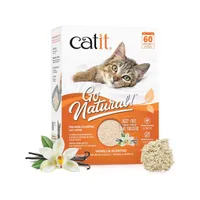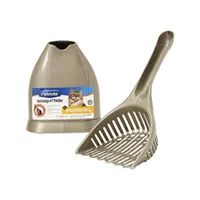How often to change cat litter, according to a vet
Not sure how often to change your cat's cat litter? Our vet explains
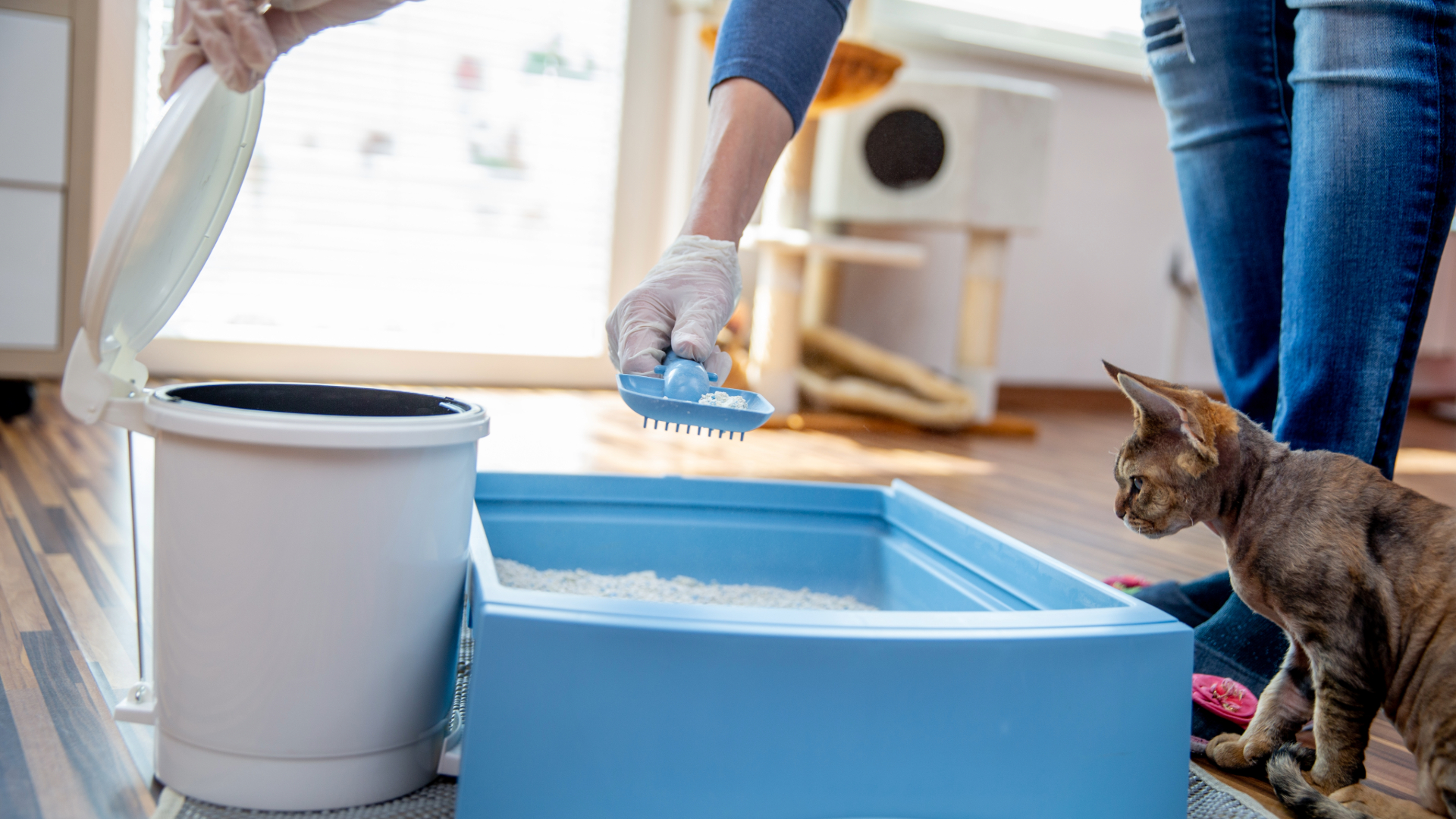
If you're wondering how often to change cat litter, you're not alone. It's a common question among pet parents – and there's a lot of conflicting advice online!
In short, you should thoroughly clean the best cat litter box once a week, with spot cleaning done daily. However, this is general advice and depends on the type of litter you’re using, how many cats you have, and their habits.
Below, expert vet Dr Rebecca MacMillan answers everything you need to know about how often to change your cat's litter – including whether cleaning it more frequently can improve their health, along with our top cat litter hacks to make life easier.
How often to change cat litter
Dr MacMillan explains that most litter boxes require a full change every week, but this can vary depending on the type of cat litter you use. Since clumping litter makes spot cleaning easier, you might find that a full change isn’t needed as often.
Catit Go Natural Pea Husk Clumping Cat Litter | Amazon
This cat litter clumps into a ball when it comes into contact with liquid, making it easy to spot-clean soiled patches from the box. It's made from eco-friendly pea husk that's flushable and dust-free.
If you live with multiple cats, their litter box will probably need to be cleaned more regularly, around a few times a week.
So, what does a "full change" entail? The easiest method is to place a garbage bag over one side of the litter box and empty the entire contents into it. Scrape any leftover residue using a scoop, then wash the box with water and soap (but avoid using harsh chemicals or bleach). Once it's clean and the soap is rinsed away, dry the box with a clean towel and refill it with plenty of the best cat litter.
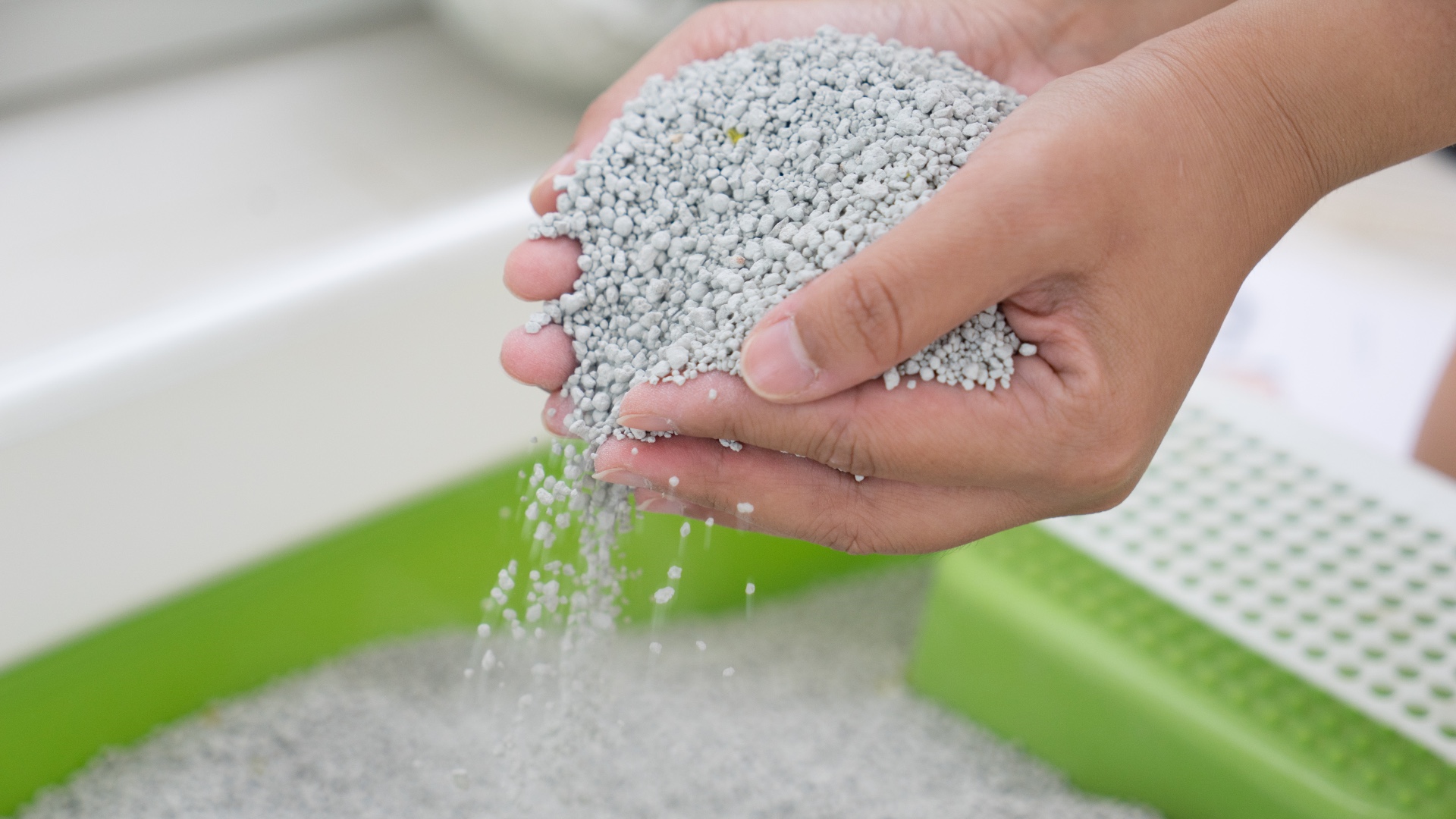
How often should a litter box be spot-cleaned?
Make sure you're spot cleaning your cat's litter box at least once a day, recommends Dr MacMillan. This involves removing all clumps of urine and feces to keep things fresh and clean.
Get the best advice, tips and top tech for your beloved Pets
She adds: "Cats are very clean animals and can be particular about their litter trays, so regular scooping is important."
Petmate Scoop N' Hide Cat Litter Scoop | Amazon
This handy scoop makes spot cleaning ten times easier – clean litter falls through the gaps, while poop and dirty litter get picked up. It also comes with a holder, so you don't have to soil your surfaces.
Will I need to change the litter more often if I have multiple cats?
If your cats decide to use the same litter box, you'll need to deep clean it more frequently, potentially a few times per week if it's heavily soiled. However, if you have more than one cat, you should provide multiple litter trays.
Dr MacMillan says, "The rule of thumb is to have at least one litter tray per cat, plus an extra one."
Will my cats be healthier if I change the litter often?
Dirty litter can lead to medical problems – for both you and your cat. One of the biggest issues facing humans is inhaling too much ammonia from the feces and urine. But there is also a chance of developing a bacterial infection from the poop or coming down with toxoplasmosis, caused by a parasite found in the feces of infected cats.
Cats can get a fungal infection from a filthy litter box, but the main problem emerges in felines who decide to stay clear. If a cat starts to avoid a dirty litter box, then they may begin to hold their urine for longer, and this can cause a urinary tract infection and problems with their kidneys and bladder. Untreated, a cat can become very ill and could even die.
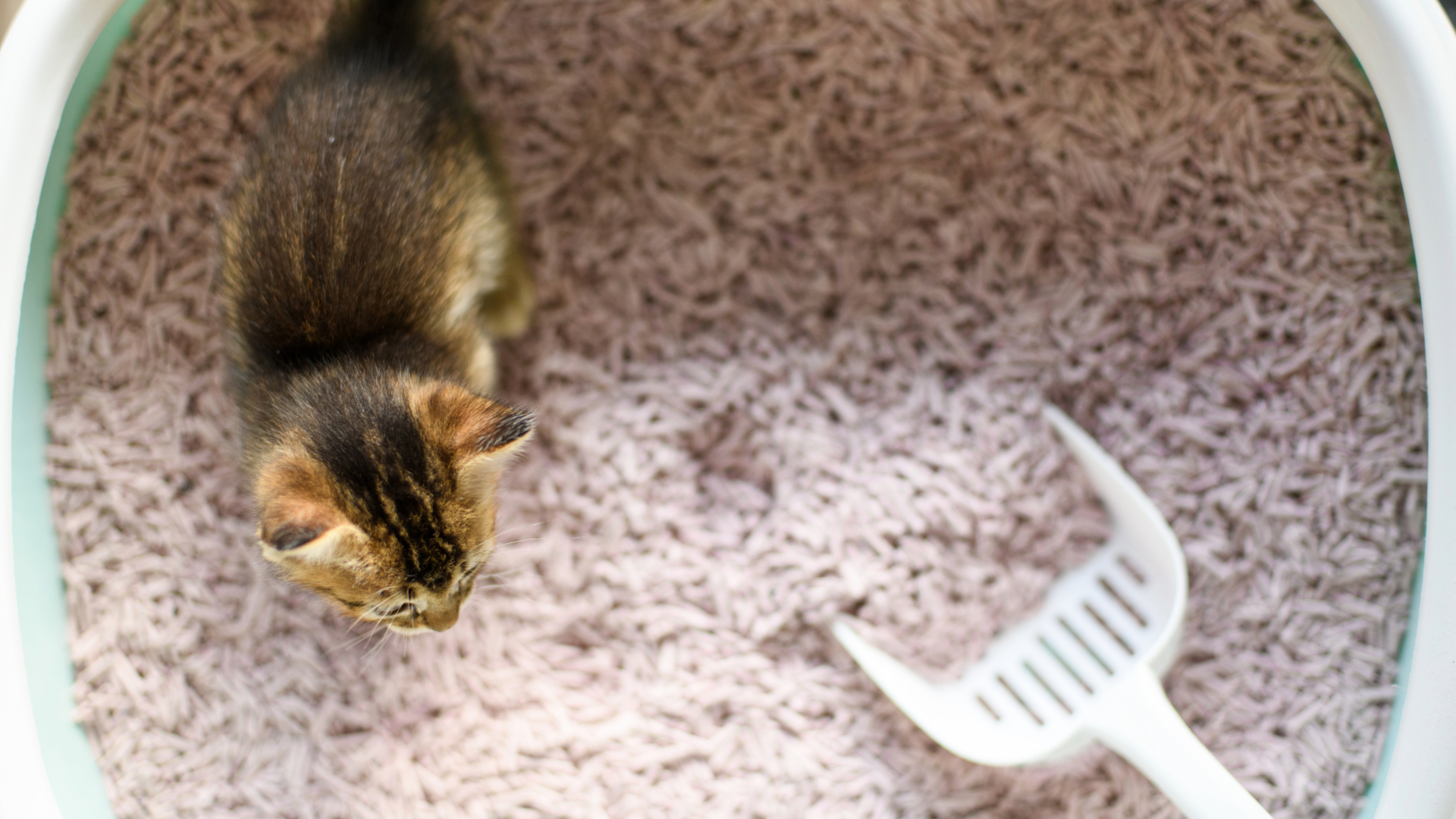
Dr. MacMillan says: "If you are already cleaning your cat’s litter box regularly, with daily scooping, then more frequent cleaning won’t necessarily make them any healthier.
“But if your routine is lacking and you often forget to keep on top of things, then an improvement on this could have a positive impact on your cat’s wellbeing. Cats prefer to use clean litter boxes. A dirty box could cause them anxiety and may lead to issues like toileting accidents around your home.
“Some cats can even develop stress-induced cystitis if they are feeling stressed out by a dirty litter box. This can cause signs like excessive straining, passing small amounts of urine at a time, and passing blood-tinged urine. Affected cats often require treatment from the vet to ease their symptoms."
Is there a way of reducing the hassle of cleaning cat litter?
- Spot-clean frequently to save time on full cleans
- Invest in flushable, clumping litter to speed up clean-ups
- Consider a cat litter subscription to secure the best price
- Keep everything you need in one place
- Buy a litter tracking mat (like this one from Amazon) to avoid a mess on your floor
- Choose a high-sided litter box to prevent spills (like this one from Amazon)
How do I know when to replace my litter box?
Wondering when you need to replace your litter box? Here are the signs, according to Dr MacMillan:
- Extensive scratches
- Scuffs
- An odor that doesn’t go (even after deep cleaning)
- Cracks in the plastic
- Stains or marks you can’t get rid of
You might also be wondering, 'Can I use sand as cat litter?' and 'how do self-cleaning litter boxes work?' Or discover how to hide the litter box

Rebecca is a veterinary surgeon who graduated in 2009 from the Royal Veterinary College in London. She has a wealth of experience in first opinion small animal practice, having done a mixture of day-to-day routine work, on-call emergency duties and managerial roles over the years. She enjoys medicine in particular and she is proud to have recently achieved a BSAVA postgraduate certificate in small animal medicine (with commendation).
Edited by Georgia Guerin and Alexis De Leaver.
This page was last updated in July 2025 by Megan Milstead.

David Crookes has been a journalist for almost 30 years and he has written for a host of magazines, newspapers, websites and books including the World of Animals Annual, BBC Earth, Live Science, The Independent and Tom’s Guide.
Born in England, he lives with two cats but he’s also keenly interested in the differences between the huge number of dog breeds – in fact, you can read many of his breed guides that he’s written in collaboration with vets here on PetsRadar.
With a lifelong passion for technology, too, he’s always on the lookout for useful devices that will allow people to keep their pets happier and healthier, and provide them more time to spend together.
David has a degree from Durham University, as well as postgraduate diploma in journalism from the University of Central Lancashire.
- Megan MilsteadStaff Writer
